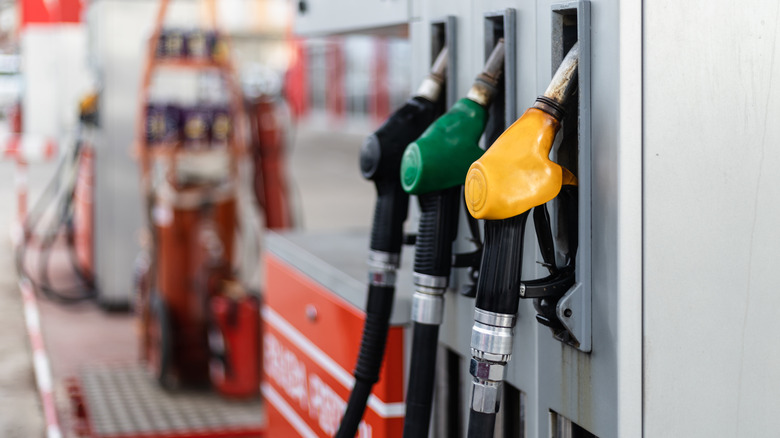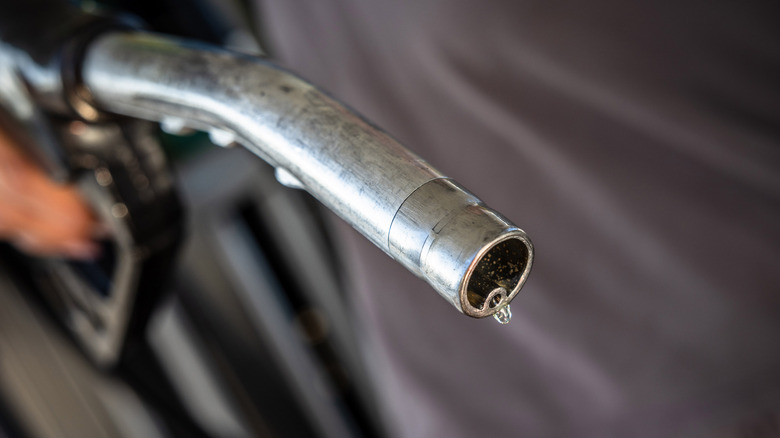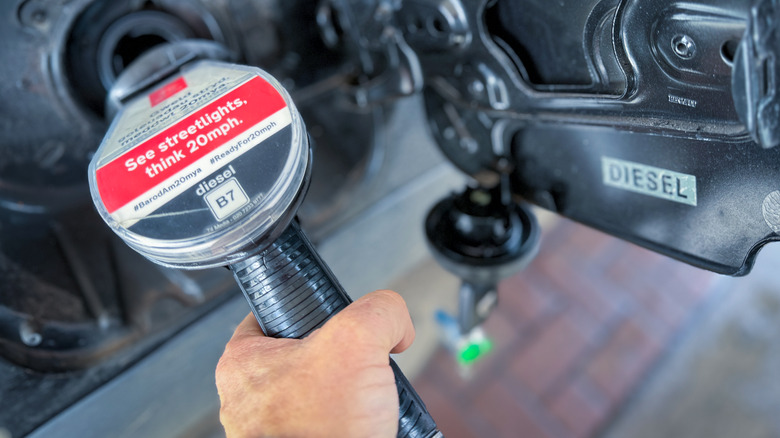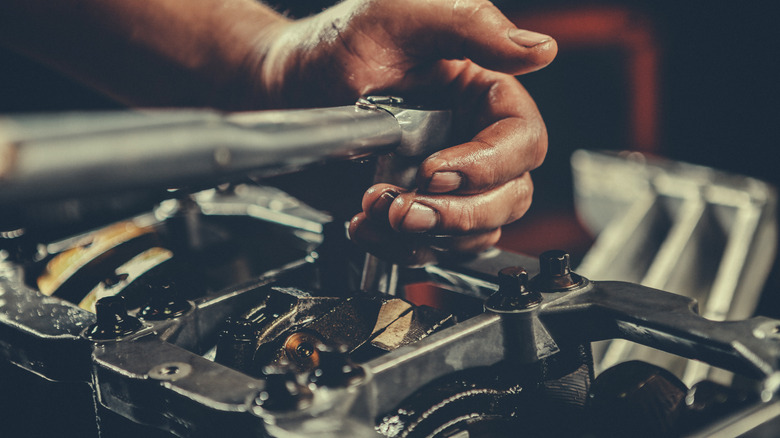What Actually Happens If You Put Diesel In A Gas Car?
Driving is one of those activities that millions take for granted every day. It can feel as though we're traveling to our most common destinations (work, the grocery store and so on) simply on autopilot, but the reality is that concentration is paramount. It's frighteningly easy to make a costly mistake while behind the wheel. One surprisingly common error drivers can make is filling a car with diesel instead of gas.
It's a mistake that you may think you'd never make, but it's a pitfall that's surprisingly easy to fall into. In Britain alone, the RAC reports, around 150,000 drivers annually feed their vehicles the wrong juice. Whether it's a hard-learned lesson or one that veteran drivers drilled into you when you were new to the ways of the road, you might wonder exactly what would happen if you introduced diesel to your gas vehicle's diet.
Here's a look at the differences between gas and diesel, how the wrong one can potentially harm a vehicle, and what can be done to mitigate the damage if you should make this mistake.
The differences between gas and diesel
In terms of their oily origins, diesel and gas begin as the very same thing. There are some crucial differences in how both are ultimately harnessed by an engine, though, which result in something of a never the twain shall meet situation between diesel and gas.
Gas engines utilize electricity to galvanize the reaction and burn their fuel, but diesel doesn't do this. Instead, diesel vehicle engines rely on jets of that fuel and a complex system of treated air. These different processes add up to significant internal differences between the two types of engines, with the bottom line being that the two types of fuel are, generally, fundamentally incompatible. Diesel engines are very different.
It follows, then, that you certainly don't want to fill up on the wrong type of fuel for your vehicle. This doesn't necessarily mean that putting diesel in a gas engine is an immediate disaster, though. There are a few different factors that determine exactly what can happen if you mistakenly do so.
What kind of harm can diesel do to a gas car?
The key to a diesel engine's functionality is lubrication. "Fuel delivery systems in compression ignition engines depend on fuel to lubricate and cool sliding contacts," writes Yvonne Thiel of Texaco in PetrolPlaza. Accidentally introducing unleaded gas into the equation can be harmful because it can coat the components of the engine and therefore remove that lubrication. With the opposite dilemma, meanwhile, diesel isn't activated by a flash of electricity as gas is, which means that the reaction won't take place and it won't power a gas car.
It will, however, cling to its internal workings and cause all manner of grief. As Auto Accessories Garage's Jake McKenzie explained to Reader's Digest, "Because of its thickness, even a small amount of diesel fuel in a gas vehicle can clog the engine's fuel injectors, filters, and lines."
How harmful that can be would depend on factors such as how much diesel has been added, how much gas remained at the time, and (crucially) whether the engine was started after the mistake was made. There's no specific answer, but signs of such damage can include engine faults, irregular movement of your vehicle, and grinding to a halt entirely once the correct fuel left in your engine is depleted.
What can you do if you make this mistake?
Some might think that they'd never find themselves in this situation, but it can happen to anybody. Furthermore, it's a mishap that can potentially be rather less disastrous if you act quickly.
Not starting the engine prevents the diesel from spreading as much as it could, helping to somewhat contain the problem and potentially buying some time. What you'll then need to do is get your car to a safe and accessible place for professional servicing with your chosen provider. Be prepared, though, for the worst-case scenario, particularly if the internal clogging is severe (such as if you ran your vehicle for a time before discovering what had happened).
Though gas and diesel may seem to be rather similar substances, the differences in make-up between the two (diesel is rather thicker) are the reason for this disparity. As such, it's crucial to take extra care at the pump. Diesel engines may be more efficient than their gas counterparts, but only when used correctly.



